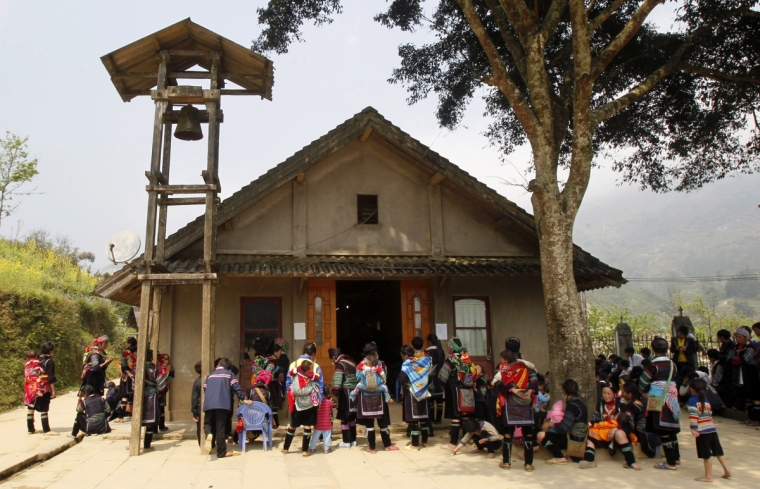Laotian pastor murdered in home for refusing order to stop preaching

VIENTIANE, LAOS (Christian Examiner) – Word is slowly seeping out of Laos that a Christian pastor who had been warned to stop preaching in his village and the surrounding countryside has been stabbed to death.
According to Human Rights Watcher for Lao Religious Freedom, a Tennessee-based advocacy group with close ties to the country, Pastor Singkeaw Wongkongpheng was murdered in his home by an attacker identified as "Mr. Wansai," who claimed he was operating on behalf of the secret police.
Wansai reportedly is a police officer in Luang Prabang Province and serves as a prison guard in Pha-Oh Prison.
Local Christians ruled out robbery as a possible motivation for this ruthless and cold-blooded murder. They believe that his death was the direct result of his Christian faith and ministry of spreading that faith.
HRWLRF also reported local Christians in Luang Prabang suspected Wansai – along with four other men – intended to kidnap the pastor and his wife to dispose of them quietly, much the same way another Christian leader and his wife disappeared several years ago and were never recovered in Luang Namtha Province. When the pastor refused to go quietly, he was killed.
"Local Christians ruled out robbery as a possible motivation for this ruthless and cold-blooded murder. They believe that his death was the direct result of his Christian faith and ministry of spreading that faith," HRWLRF said in a statement.
Singkeaw served as pastor to the roughly 60 members of Na-ang Church in Na-ang village. Many of the church's members also came from Hueytat village nearby.
"His troubles started back in the period of great religious persecution against the Christians in Luang Prabang province in 1997 to 2002 when Lao officials began cracking down on Christians in his area and official orders were given that no Christians be allowed to spread the Christian faith in Chomphet district and many other districts in Luang Prabang province. However, Pastor Singkeaw ignored the orders and continued spreading the Christian faith. Actually, the church that he had been pastoring up to his death was founded by him in 2000 during the great religious persecution," HRWLRF said in a statement.
"Once again about a couple of years ago, Lao officials ordered Pastor Singkeaw to cease the propagation of the Christian faith but again he ignored the order and continued spreading the Christian faith to five villages."
Singkeaw is survived by his wife and six children.
When Communists seized power in 1975, they expelled all foreign missionaries, and placed many Christians under arrest. Now, four decades later, the Laos Constitution and the United Nations International Covenant on Civil and Political Rights, ratified by the Southeast Asian country in 2009, both uphold individual religious freedom or the right to adopt a religion by choice and practice it in public worship (Article 18).
But, like in neighboring Vietnam, "religious freedom" extends only so far as it helps the state meet its objectives. Religion that is considered "divisive" is considered illegal.
Laos is largely rural and only has a population of six million people. The majority of the people in the country are traditionally Buddhist (67 percent), but animism is pervasive. Christians make up about 2 percent of the total population, and 0.7 percent are Catholic.
According to AsiaNews, "Protestant communities have suffered the most from religious persecution ... Cases include peasants deprived of food for their faith and clergymen arrested by the authorities."
Restrictions on Christian worship have only increased since 2011 as the government, like Vietnam's, issued new guidelines on what constitutes proper religious belief and worship. Those guidelines were known as "decree 92."
RELATED ARTICLES:
Vietnam's Montagnard Christians sent back into the Lion's den